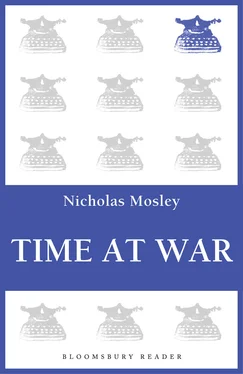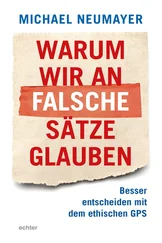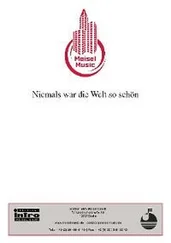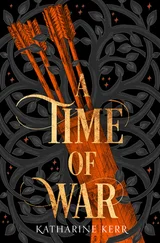Somebody must have been whispering some very wicked things into your ear. The idea that a Rifle Brigade officer is not allowed to venture more than 5 miles from camp is so much precious nonsense. And to take Saturday night off — well, agreed it is against the rules, but similarly it is forbidden to wear anything except army underwear, and you will not find many level-headed men, let alone an officer, keeping within the bounds of that law. Seriously, even if anyone of any importance should know — and I cannot see that they should — they would care really very little. They might make it an excuse upon which to start a row if they were dissatisfied with my work, but otherwise, Lord, they don’t mind.
And the old red herring about shouldn’t I suffer as my men — well really, that is a question that I settled to my own satisfaction a long time ago. Do my men mind? Heavens no. They ask me fondly after London every Monday morning. I show them that I can plunge around with them during the week, and do a great deal more work than they do too, and they judge me on my ability to handle them, and not on the amount of self-suffering I can impose upon myself when off duty. Surely this ‘moan moan and let’s all be miserable together’ idea is horribly wrong. And thank God I truly believe that the men realise it is too.
And I had such an enjoyable weekend! A very good party on Saturday night …
And then later, after my aunt had sent me a copy of a speech she had made to an assemblage of bishops –
Of course I agree entirely that there is no hope for the world and the progress of our civilisation if we move and live guided merely by political or economic considerations. Thus you say that belief in religion and in a Church is essential. But you are anxious to centre this necessary Faith in the doctrine of Christianity as it is interpreted by the Church of England today, and in this I find it impossible to follow you.
Doctrine as interpreted by the C of E seems to me to be this — whether one takes the doctrine of Original Sin literally or metaphorically, it appears that God created man with a proclivity to sin, so man sinned, and continued to wallow in his sin for many gloomy centuries. Then at a given moment God sends his son down to earth in human form, and by his voluntary death the Son of God takes the sins of the world upon his shoulders, and the world is left free from sin. Thus has the ultimate purpose of the world been fulfilled by the life and death of Christ? If so, what is there here upon which we can build a faith for the future? What can we do except sit gloomily and ruminate upon the past, and wait until in the pangs of the aftermath of fulfilment we finally destroy ourselves? The early Christians clearly believed that the purpose of the world had been fulfilled in Jesus, and they hourly expected the end of the world. We were made sinful: all we can do is to pray that Christ will come a second time more swiftly to consummate us.
You will notice that all the way through this argument I have tried to use the phrases ‘the doctrine of the C of E’, or ‘Christianity as interpreted by the Church’. I have never condemned Christianity itself, for I too believe that in the story of Christ’s life and teaching there may lie the foundation of our necessary Faith.
What are the facts of Christ’s life as far as we are able to ascertain them? He came into the world as a human man born of a human woman. By his personality and teaching he won a great and devoted following and performed many so-called miracles. Through his own intellectual exertions and his emotional experiences he raised his human personality to such a state of perfection that he realised that he himself might be called God. It was the agony in Gethsemane which showed him this, and it was then that he realised that if in becoming perfect man he had become God, and that it was time for him to die and to become God in form as well as in reality. Those are the facts of Christ’s life. The rest is either mythical or incidental.
Now here is the foundation for a faith for the future, a hope for man as an individual. This is the message of Jesus — he shows that in man is the seed of God, and that it is through the exertions and understanding of the individual that the state of perfection can be reached. Make yourself perfect first, and then with the love that you would thereby acquire you would be able to make others perfect. He was always a supreme individualist, and the idea of absolute servility of mind to a mystical and dogmatic Church seems entirely against his nature.
These are the impressions that a somewhat irregular Church attendance and a little reading here and there have given me. My mind is not made up, and I hope it will never be, for one should never settle one’s opinions, but always be seeking and searching for the Truth.
These ruminations were an attempt to escape from the wearisome routine of everyday reality. A determined effort to find a system of truth beyond the meaninglessness of anarchy. My father professed an interest in religion: he had the idea of a synthesis between Christianity and some sort of Nietzschean elitism. He had introduced me to Nietzsche when he had been reading his work in Holloway, but from the beginning of my own reading of Nietzsche I had the impression that my father was misunderstanding him; as well as, more expectedly, Christianity.
I wrote to my father from Ranby –
I believe that Christ recognises his elect just as much as Nietzsche would like us to recognise his. N’s contention that the Übermenschen were ‘beyond good and evil’ is of far greater significance than ‘above morality’. To be above morality is merely to be sufficiently civilised to be able to do without a conventional code of behaviour. To be ‘beyond good and evil’ is to see that such values (both ethical and religious) can be based on entirely different standards.
With Nietzsche’s values I have very little sympathy. ‘ Heiterkeit ’ (serenity) — yes, that is perhaps the most desirable quality that any mortal can possess. But ‘ Härte — why always the emphasis in domination and power through hardness? There is no beauty, and I would say very little nobility, in‘ Härte ’. But I have wandered from the point. When I began to talk about ‘beyond good and evil’ I meant to go on to suggest that God is ‘beyond G and E’, in the sense that it is obvious that his values are based upon entirely different standards to our own. And might not this be the answer to the problem of suffering to which we are so faintly now trying to find a solution? All our ethical systems and philosophies on earth are involved so entirely within the necessary limits of our own assessments of good and evil that I do not think that we, in such an elementary state of mental development, can have any close comprehension of God’s conceptions and values. The jump from ‘within G and E’ to ‘beyond G and E’ is so great that at the moment I believe it is beyond the powers of our understanding to see what lies upon the other side. When man has developed sufficiently to take this step he will be superman indeed, and close to God; but it seems that we are extremely (though not infinitely) far from it now.
I have become involved in a correspondence upon the Church with Aunty Nina. She was rather sensible about my fierce attack on the C of E, but one of her East End priests to whom she sent on my letter wrote me the most absurdly half-witted reply which only aggravated the grievance. I really do believe that these men do not understand what they say — which perhaps is best, for it is happier for them to be charged with ignorance and stupidity than with gross perversion and distortion. I’m afraid Nina thinks I have become over-influenced by Nietzsche. Which is untrue, for as I have said, with N’s ethical values I have no sympathy.
Читать дальше












